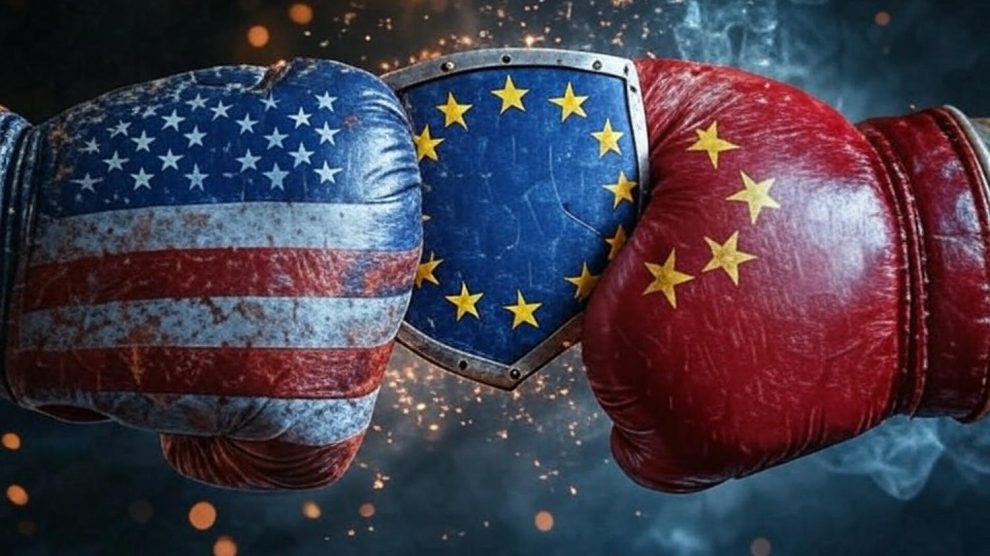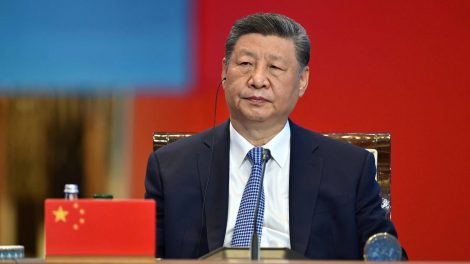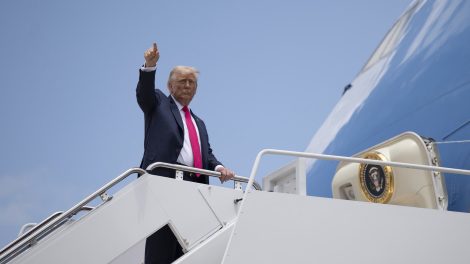As U.S. President Donald Trump and Chinese President Xi Jinping concluded their long-awaited face-to-face meeting in Busan, South Korea, the two leaders announced a limited set of economic understandings — from China’s renewed purchases of U.S. agricultural and energy products to commitments on rare earth exports and cooperation to curb fentanyl flows into the United States. These are tangible deliverables, but the strategic implications remain uncertain, especially for Europe.
Why he matters: Barkin is a Visiting Senior Fellow in the German Marshall Fund’s Indo-Pacific Program based in Berlin, where he is “Watching China in Europe ” – his newsletter is an international benchmark on the issue. He is also a Senior Advisor in the China practice at Rhodium Group, and has been a key voice in the European debate on “de-risking,” a term that has come to define the EU’s new approach to China.
Q: What does Trump’s trip to Asia and his meeting with Xi mean for Europe?
A: The risk for Europe is that Trump and Xi do deals, for example on rare earths, that leave Europe out in the cold and undermine the potential for transatlantic and broader G7 cooperation on this and other economic security challenges.
- Europe doesn’t have an interest in the US and China descending into an escalatory spiral. So a calming of tensions between Washington and Beijing can be positive for Europe.
- Regardless of what is agreed between Xi and Trump, however, US-China relations are likely to remain tense in the years ahead, with periods of escalation and de-escalation.
- There is no grand bargain to be had between Trump and Xi.
Q: In light of Beijing’s export controls and Europe’s ongoing dependence on Chinese critical minerals, how should the EU respond?
A: In a first step, Europe needs to engage with China to try to reach an agreement that ensures the continued flow of rare earths to European companies. At the same time, Europe needs to work with its G7 partners to establish alternative sources.
- This will be more challenging if the US is not willing to play ball. If cooperation with Washington is not possible, Europe will need to work with other partners like Japan, Canada and Australia.
- Securing a reliable ex-China supply of rare earths is only part of the problem. Companies that invest in mining, refining and recycling need to know that the demand will be there despite the fact that China’s offering will be far cheaper.
- So governments will need to set price floors for Chinese raw materials and provide long-term purchase guarantees to incentivise investment in a rare earth supply chain.
- Scale will be crucial. Europe cannot do this on its own.
Q: So, definitively, how would you describe the current phase of EU–China relations — are we witnessing a gradual strategic decoupling, or rather a pragmatic attempt to manage interdependence under tighter political control?
A: There is an urgent need for Europe to begin the process of de-risking after several years in which the talk has not been matched by concrete action. This will require Europe to set strategic priorities.
- Reducing its dependence on rare earths from China, ideally in cooperation with G7 and other partners, should be at the top of the list. This will be a litmus test for Europe’s ability to de-risk.
- It is not about decoupling. It is not about cutting off engagement with China. And it is not about completely eliminating Europe’s reliance on China in certain areas.
- It’s about beginning the process of mitigating glaring vulnerabilities over a five to ten year time horizon
The bottom line: Barkin’s warning comes as Trump touts new economic “wins” from his meeting with Xi. But for Europe, the real test lies ahead: whether it can move from rhetoric to action on de-risking without being sidelined by bilateral power deals between Washington and Beijing.




